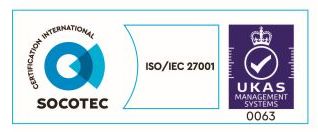Push notifications have become the newest tool that businesses are using to communicate with customers. Using push notification allows companies to send an alert directly to the smartphone of their customer (providing that they have been enabled). Of course, a message that goes directly to the home screen of customer smartphones has significant value, because of the amount of time that people spend browsing phones. Recent studies show that adults spend on average spend 2 hours and 49 minutes per day using their phones and this increases to 4 hours per day for those aged 15 to 24. The biggest advantage of push notifications is that they can guide smartphone users towards various platforms such as your company app, social media channels or website, which is achieved by promoting products and services or offering discounts.
However, whilst push notifications are clearly beneficial and offer genuine value to businesses going forward, they do have their limitations - which we will discuss shortly. The reason why the limitations of push notifications are important to address is that several businesses have announced recently that push notifications are becoming their priority communication method as opposed to alternatives such as SMS marketing. Therefore, we thought we’d evaluate some of the pros and cons of push notifications as opposed to SMS marketing.
In order to send push notifications to your customers, you must first own an app that is available to download on smartphones and tablets. If you already have an app, then that’s great, you can get started and begin to send out notifications with relatively limited effort. For those businesses without an app, the process of sending out push notifications will not happen overnight, unfortunately. Developing a mobile app is both time-consuming and costly, with initial development costs often running up well into the thousands. To put into perspective just how many businesses are currently without an app, recent studies suggest that as many as 42% of small businesses are yet to launch one.
One of the main factors to consider when setting up push notifications is that in order to receive them, customers must first download your app. For large multinational corporations that have become household names, app downloads shouldn’t be too much of a concern. However, for most businesses, trying to persuade customers to download your app and then continue to use it can be a tall order. Studies show that on average, 77% of people will never use an app again 3 days after downloading and a staggering 90% of users will leave after one month. Therefore, requiring companies to have a continual flow of downloads and highly engaging content in order to maintain app traffic. Without this, communicating with customers only via push notifications would be restrictive and damaging. Using SMS marketing as an alternative example, you would be much better collecting customer telephone numbers when they purchase on your website and then informing them of any offers through text.
Encouraging customers to download your app isn’t the only step that needs to be completed before you can send out push notifications. Customers using both iOS and Android devices must opt-in to receive the notifications, which is usually achieved by clicking “accept” via a pop-up when opening apps for the first time. In 2018, average push notification opt-in rate was approximately surprisingly low at just 53.3%, which is only a slight increase over the previous few years (it was 52% in 2014). When you compare this to the open rates for SMS marketing, which is 98%, then there is clearly only one winner.
A big challenge when sending push notifications is that they can often get overlooked or ignored by your customers. For example, US smartphone users receive an average of 46 push notifications per day. If someone doesn’t check their phone for several hours, then they may have quite a few notifications waiting for them and there is no guarantee that they will even acknowledge your message. Your customer could be in a rush and simply clear their notifications, or they could click on another notification or a text that was sent more recently. This would cause your message to be removed from their home screen entirely.
Ultimately, there are a lot of factors that can determine whether your push notifications will generate a successful return. One of the main external factors is that there is no way to tell how many push notifications that your customers are currently receiving from other companies. Some customers may only be subscribed to a small handful of select companies, whereas others may have many apps and receive a constant flow of updates. Thus, taking a lot of control out of your hands. In comparison, if you were to send a text marketing message to your customers, then it would permanently stay in their inbox and they would have to open the message in order to remove the alert. Therefore, significantly increasing the chances of your message being read.
Just like most other communication channels, the success of your push notifications can be monitored and tracked to determine performance, including click-through rates and conversions. A A study of around 40 billion push notifications shows that the average click-through rate for push notifications across all industries is 2.74%, which is a pretty low return but expected when considering some of the topics mentioned here. When you compare this to the click-through rates for SMS marketing campaigns that include links (36%), then there is no comparison once again. If you do decide to start sending out push notifications, then it is important to consider the volume that you send out on a daily and weekly basis. You need to ensure that you are sending enough to get noticed, but not too many, otherwise, you may run the risk of becoming spammy, which could damage your brand in the long run. A bold prediction by Neil Patel is that brands may overdo push notifications until they annoy their audiences and force them to turn them off.
As mentioned previously, the process of subscribing to push notifications requires customers to visit the app store, download your app, and then subscribe when opening the app for the first time. Because this is quite a long process, it is usually only the most loyal customers that receive push notifications from companies. Typically, smartphone users won’t download an app unless they have an emotional connection to the company associated (besides gaming). Therefore, this highlights the advantage of using push notifications because they allow you to communicate with your most loyal customers. These customers are likely to respond positively to any call to action that you send out, meaning that push notifications give you a great way to communicate with your core customers.
However, the limitations of this are that your most loyal customers are likely to purchase from you regardless of how you communicate with them. When providing discounts and exciting offers, you want to target customers who are on the fence or those who haven’t made a purchase for a while. These customers are likely to be missed if you use push notifications as your main communication method as it is unlikely that they will have downloaded your app. Whereas, with SMS marketing, you will be able to send out a text campaign to any customer that has made a purchase on your website and included their telephone number.
To summarise, push notifications certainly do add value when used as part of an overall marketing strategy. They provide businesses with a great way to communicate with their core customers and are effective when used to announce new offers or products ( 83.33% of push notifications are used for this reason). They also help in generating a regular flow of traffic towards business mobile apps, which of course is important. However, it is important to realise that they only target one part of your overall audience, that being your most loyal customers. Push notifications are not effective in encouraging less committed customers and those who may have purchased a few months or even years ago but haven’t made a purchase since. Furthermore, they should not be used for important updates or notifications - such as appointment reminders, order confirmations or sensitive messages. Finally, when you compare the benefits of push notifications with SMS marketing, there is still a long way for it to go in order to compete. SMS marketing has amazing open rates, much higher link click-through rates and allows businesses to target all customers that it holds data for, rather than just those who have downloaded the app. Although, it goes without saying that two is often better than one!

Hi, I'm Liam, Marketing Executive at Reach Interactive. I have a background in international marketing and love branding, social media and seeing how companies communicate with their customers.

TAKING CARE OF MILLIONS OF MESSAGES EVERY SINGLE DAY - TRY US FREE
Use our calculator to work out your price (£) per credit below:
(1 Credit = 1 × 160 character text message).

PARTNER : MEGA FESTIVALS




©2002-2024 All rights Reserved. Reach Interactive© is a registered trademark of Reach-Data Ltd is registered in the UK and Wales. Registration Number: 04602161. Privacy Policy Terms and Conditions